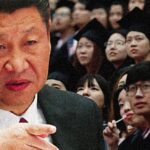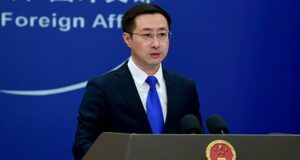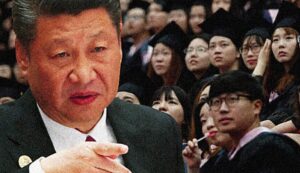
At the end of March, the Rocky Mountain Institute was in the news again when the Department of Energy cancelled two of its contracts with the environmentalist think tank. These awards were not aligned with the administration’s current objectives, the DOE said.
The contracts were legacies of Biden times, when greens were rolling in the green. After the country voted in a Republican government, RMI issued a no-hard-feelings press release in November: “As a nonpartisan organization that has long worked with both Republican and Democratic administrations, we stand ready to work with the new administration and all newly elected officials to bolster energy security, clean energy technologies, and clean manufacturing jobs.”
Just as they have been working with Red China, one supposes.
Asthmatic research
Any hard feelings might be sourced to RMI’s role in provoking the controversy over gas stoves. RMI had published some shoddy research, and Biden’s DOE had promulgated “the now-disputed RMI study linking gas stove usage and childhood asthma.” In a letter, Congressman Bill Huizenga told DOE Secretary Granholm: “While you directly responded to this study with an urgent call to ‘fix this’…RMI has since walked back its claims amid scrutiny.”
Richard Trumka Jr., then a U.S. Consumer Product Safety commissioner, made bigger news by suggesting that the agency “could ban gas stoves because they have been linked to childhood asthma,” citing the same discredited RMI study. “Trumka had confirmed to CNN that ‘everything’s on the table’ when it comes to gas stoves, but stressed that any ban would apply only to new gas stoves, not existing ones. At the time, a White House spokesperson said, ‘The President does not support banning gas stoves— and the Consumer Product Safety Commission, which is independent, is not banning gas stoves.’ ”
This gas stove flap lit up RMI’s communist connections.
Then-Senator J.D. Vance “said he is alarmed by the institute’s ties to the Chinese Communist Party.” Senator Ted Cruz, in a letter to RMI, wrote that what made the controversy “even more concerning is RMI’s close ties to the Chinese government.” He asked RMI, superfluously, to state whether RMI had “ever received any funding from any entity or individual associated with the Chinese government.”
Politifact jumped in to help us learn our ABCs. “In China, the Communist Party controls the government, and the government has vast control over public life. So any effort to change China’s environmental behavior requires working with the Chinese government, which in turn requires working with Communist Party officials.”
How to collaborate
Yes, RMI works with the communist government and proudly. It’s all over their website. It’s their specialty.
The Washington Free Beacon reports that in 2013, RMI wrote a paper advising Red China “to replace existing appliances and generators with ‘clean energy technologies.’ ” China’s National Development and Reform Commission “went on to set climate goals that included energy reduction targets. When local provinces in 2021 failed to meet those targets, the commission pushed them to implement electricity rations, prompting ‘dimmed traffic lights that [caused] chaos’ and ‘half-cooked rice in rice cookers.’ ”
Half-baked environmentalism will do that. But this pairing of advice and follow-through is the exception. The China stories on RMI’s website are more aspirational. RMI is a helper, a planner, a partner, a dreamer. Maybe RMI would like “to change China’s environmental behavior”; but, meanwhile, it is paid to generate reports on the possibilities of how behavior might be changed. It’s about how-to and hypotheticals.
RMI publicizes Beijing’s interest in its commissioned reports, which hint at future action. It is paid to speak about China’s good intentions at environmental conferences. It publicizes its environmental work for Beijing.
This activity benefits the climate-change movement generally. The message that China takes environmentalism very seriously disarms all those skeptics who say it’s no use tweaking carbon emissions at the margins if China and India are huge emitters who don’t care.
Evergreen
RMI, then, is a greenwash operation. It’s more effective to have RMI sing Beijing’s praises than to have (captive) Chinese green organizations do so. Look at the China Program part of RMI’s website. So many initiatives! Busy, busy. Red China is so serious about the environment.
As the UN writes, “Greenwashing presents a significant obstacle to tackling climate change. By misleading the public to believe that a company or other entity is doing more to protect the environment than it is, greenwashing promotes false solutions to the climate crisis that distract from and delay concrete and credible action.”
If you’re an environment-unfriendly government (or corporation), you can join China in paying for a greenwash.
Meanwhile, one of RMI’s funders is the Energy Foundation, “run by former Chinese Communist Party officials.” They do what a communist green-energy organization does best, funneling dark money to U.S. climate groups to influence U.S. government policies.
The game is to enfeeble America’s energy economy while convincing the public that communist China is “doing more to protect the environment than it is.” RMI has gotten caught playing this game. For now, it has lost its U.S. contracts. It needs to lose its Chinese deals as well.
The old joke says environmentalists are like watermelons, green on the outside, red on the inside. The fear is that RMI is like a tomato, red inside and out. At least it styles itself nonpartisan (despite its office in Beijing). □
James Roth works for a major defense contractor in Virginia.
Also see:
The Washington Free Beacon: “Ex-CCP Officials Funneled Millions to US Universities, Nonprofits To Promote Green Energy, Tax Forms Show”
“The Chinese-tied organization’s involvement in the American climate movement is indicative of how China seeks to influence the United States economy and weaken the billion-dollar fossil fuel sector.”











